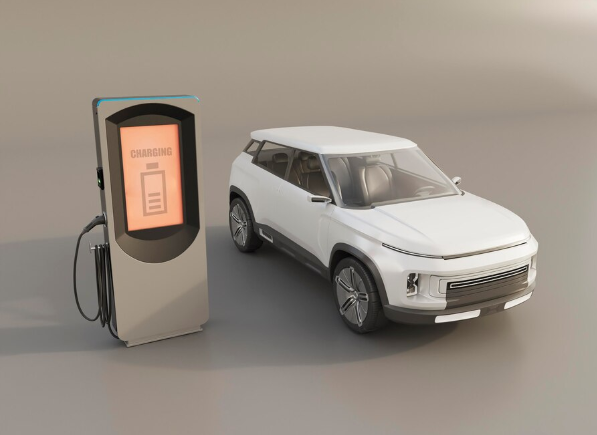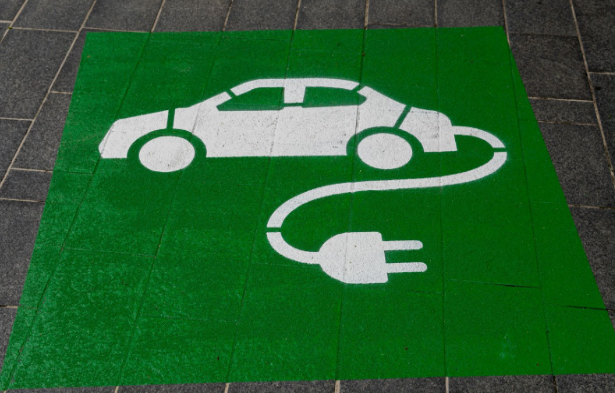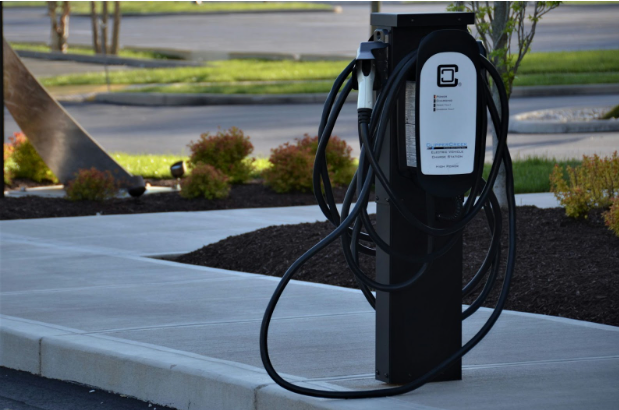A recent study projected that the Indian electric vehicle market grow from $23.38 billion in 2024 to $117.78 billion by 2032, at a CAGR of 22.4% over the forecast period.
Electric vehicles (EVs) have gained significant traction in India due to their environmental benefits, technological advancements, and government initiatives.
But in contrast, there are some really concerning drawbacks to owning an electric vehicle, too.
By the end of this blog, you will have a clear idea of whether you should choose an electric vehicle or avoid it for a few more years.
Let’s get to know!
Advantages Of Electric Vehicles
Here are some brief pointers about the advantages of electric vehicles before we go into the details:
- Electric vehicles (EVs) cost less to operate due to cheaper electricity
- Hydrogen fuel cell vehicles, a type of EV, offer long driving ranges and quick refueling.
- Governments often provide tax incentives and subsidies for EV buyers, reducing the initial purchase cost and making them more affordable.
- Electric cars come with advanced tech features like regenerative braking, smart infotainment systems, and autonomous driving capabilities, making them cutting-edge.
- In the past, EVs were seen as impractical, but that’s changed. Manufacturers now offer well-designed, lighter, attractive EVs with impressive performance.
Reasons Why You Should Consider An Electric Vehicle
Here are some compelling reasons to consider opting for an electric vehicle (EV):
- Environmentally friendly: EVs produce zero tailpipe emissions, reducing air pollution and contributing to a cleaner environment. By choosing an EV, you can support efforts to combat climate change.
- Lower Fuel Costs: Charging an EV is generally cheaper than filling up a Petrol-powered car. Plus, electricity prices are more stable than fluctuating Petrol prices. Over time, these savings can add up.
- Avoid Fuel Price Hikes: As you mentioned, electric vehicles help you avoid the impact of rising fuel prices. You’re less affected by fluctuations in Petrololine costs because you rely on electricity, which tends to be more predictable.
- Convenient Charging: Charging an EV is convenient, especially if you have a home charging station. You can plug in overnight and wake up to a fully charged vehicle. The public charging infrastructure is also expanding, making it easier to charge on the go.
- Quiet Operation: Electric vehicles run very quietly, giving you a calm and peaceful drive—no more loud engine noises.
- Government Incentives: Many governments give rewards to encourage people to use electric vehicles (EVs). These rewards can include things like tax cuts, cash back, or special funding. It’s a good idea to check your local rules to find out what benefits you can get.
How Are Electric Vehicles Different From Petrol-fueled Cars?
Both types of vehicles have their advantages and limitations. The choice depends on individual preferences.
- Power Source:
Electric vehicles run on electricity stored in batteries. They use electric motors to generate power and propel the vehicle. These vehicles rely on internal combustion engines that burn Petrololine or diesel fuel to produce power.
- Emissions:
EVs emit zero tailpipe emissions during operation, contributing to cleaner air and reduced greenhouse Petrol emissions.
Petrol-fueled vehicles release exhaust emissions, including carbon dioxide (CO2), nitrogen oxides (NO2), and particulate matter.
- Fueling and Charging:
Electric Vehicle Charge uses electricity from home charging stations, public charging points, or fast chargers. There is no need for Petrol stations.
Petrol-fueled vehicles require regular refueling at Petrol stations.
- Maintenance:
Electric vehicles have fewer moving parts, resulting in lower maintenance costs. No oil changes or transmission maintenance is needed.
Petrol-fueled vehicles need periodic oil changes, filter replacements, and other maintenance tasks.
- Driving Experience:
Electric vehicles provide instant torque, smooth acceleration, and quiet operation. Regenerative braking helps recharge the battery during deceleration.
Petrol-fueled vehicles vary in driving experience based on engine type (e.g.Petrololine, diesel).
- Range:
The range varies by model but has been improving. Some EVs can travel over 300 miles on a single charge.
The range of petrol-fueled cars depends on fuel efficiency and tank capacity.
- Infrastructure:
It requires charging infrastructure, which scales globally. Home charging is convenient, and public charging networks are growing. Petrol-fueled vehicles rely on Petrol stations.
Average Cost Of Electric Vehicles In India
The average cost of electric vehicles in India varies based on the model brand and city. But typically ranges from ₹10 lakh to ₹25 lakh. Entry-level electric cars, such as the Tata Nexon EV, are priced around ₹14 lakh.
Mid-range options like the MG ZS EV cost approximately ₹23 lakh.

Premium electric vehicles, like the Hyundai Kona Electric, can reach up to ₹25 lakh. These prices are influenced by government subsidies and incentives aimed at promoting electric mobility.
While upfront costs for EVs remain a concern, government subsidies, tax benefits, and decreasing battery prices are making them more affordable. Additionalllower running costs (due to cheaper electricity than petrol or diesel) contribute to long-term savings.
The Disadvantages Of Electric Vehicles
Despite a few benefits, Electric Vehicles present a few challenges to the potential buyers. A few of those challenges are discussed below:
1. Electric Vehicle Battery Life
Despite the efficient qualities of Lithium batteries, they wear off within a short period. The replacement costs are higher for many to afford.
The regional temperature, charging habits, and other factors affect the durability of the batteries. It significantly affects the resale value. A typical battery lasts about 8 to 10 years before a replacement and costs a hefty price.
Surprisingly, electric vehicles are a prominent threat to the environment. The production process of these batteries is a concern due to their negative environmental impact.
2. Range Anxiety: The Distance Chaos
Will I hit my destination on time? This has been a common concern among Electric vehicle users. The daily commute gets chaotic as the distance keeps extending. When the charging goes a miss, a daunting wait for 5 hours to get back on track is the norm.
While manufacturers claim upwards of 150km per charge, in reality, electric vehicles fail to hit the mark. They sustain just 100km per charge. The EV’s range falls way behind conventional vehicles’ range of tankfuls, even with the smaller engines and tanks.
3. Initial Costs: Evaluating The Investment
The hefty price tag has failed to be easy-on-the-Indian pockets. The imported batteries and tech-savvy enhancements have been the reasons for exploding price tags.
Although the initial investment bears a hefty price tag, the case studies reveal that long-term savings on fuel and maintenance can neutralize these initial costs over time.
4. Performance In Extreme Weather
Cold temperatures are a curse on the batteries, reducing their efficiency by 20%. This is a vital concern for those living in cooler regions.

Economic And Environmental Implications
Despite the core focus of electric vehicles being a reduction in economic and environmental implications, some challenges have come to light as electric vehicle adoption evolves at a slow pace.
- Are EVs economical?
Government subsidies play a vital role in making electric Vehicles affordable in various states.
Eventually, salvages caused by producing batteries, setting up home charging stations, and portable fast charges add to the creeping hidden charges.
Indian economy hugely depends on fuel sales and increased adoption of Electric vehicles might contribute to a financial crunch.
- Infrastructure inadequacy: Charging stations and grid support
Owing to the increase in Electric vehicle adaptations, we still need to catch up on connectivity and proximity to charging stations at the onset. The number of charging stations is minimal to cater to the vast demand.
Setting up new charging stations and amplifying home charging options might be a relief. But, the peak-time charging chaos causes a lot of pressure on the grids since they crave upgradation.
The home charging installations might cause hefty electricity usage, inflating your monthly expenses. Domestic power grids might fall back during high-intensity requirements.

- Technological Hurdles and Progress
Technology barriers and innovations go hand in hand at the onset of any progress.
The hurdles include :
- Battery Technology: The lithium-ion batteries have limitations in energy density.
- Charging Time: The charging time for Electric Vehicles is longer than refueling conventional vehicles.
- Cost of production: The high cost of batteries adds to the overall expenses of Electric Vehicles.
Innovations like solid-state batteries could revolutionize EV technology.
Integration of AI and the Internet of Things IoT in Electric vehicles guides the way toward a light to overcome many challenges.
Market Insights And Consumer Opinions
Consumers’ experience with electric vehicles in India is enthusiastic and cautious optimism (a mixed bag of responses).
While electric vehicle consumers are satisfied with eco-friendliness and savings on fuel, the concerns about the availability of charging stations are yet to be addressed.
The consensus among Indian consumers is that while EVs are the future, there are still hurdles to overcome.
The transition is underway, but it requires concrete efforts from manufacturers, policymakers, and infrastructure developers to realize the potential of electrical mobility in India.
The Future Of Electric Vehicles In India
A recent study says that 4.19 lakh EVs sold in India in 2022. This number stood at a mere 1.19 lakh in 2020. Despite facing challenges, the future of electric vehicles in India is bright.
- Advancements in Battery Technology
India is investing in research and development to improve battery efficiency, lifespan, and affordability. As battery technology evolves, EVs will become even more attractive to consumers.
Another factor that can hinder adoption is the safety of lithium-ion batteries, which can explode. However, this risk has significantly decreased, and such incidents are extremely rare.
- Improving Operational Efficiency
Considering fuel efficiency, petrol or diesel cars typically convert only 17% to 21% of stored energy, whereas electric vehicles (EVs) can convert up to 60% of electrical energy from the grid.
- Reducing air and noise pollution
Vehicular traffic contributes to 27% of total air pollution and claims 1.2 million lives annually. The adoption of electric vehicles (EVs) in India will significantly reduce the negative global environmental impacts originating from internal combustion engine (ICE) vehicles.
Additionally, noise pollution is a major challenge due to rapid urbanization and increased vehicle demand. According to the 2022 UNEP report, five Indian cities rank among the world’s noisiest cities.

While vehicles are not the sole source mentioned in the report, EVs are likely to mitigate noise levels because they lack the mechanical valves, gears, or fans common in ICE vehicles.
Industry Analysis And Predictions
Experts predict a surge in EV adoption driven by advancements and consumer demand.
Yet, understanding some disadvantages hindering market trends and guiding investments in depth is crucial.
Here’s what the experts forecast:
- Overreliance on predictive models: Predictions are often based on models that may account for sudden market shifts or global events, leading to potential inaccuracies.
- Market concentration: The EV market is heavily concentrated in a few countries, which may impact global predictions. The reflections on the diverse challenges and adoption rates in different regions might vary.
- Supply chain vulnerabilities: Disruptions in the supply chain, such as those caused by geopolitical tensions or pandemics, can have a significant impact on the EV industry, affecting production and sales forecasts.
- Technological uncertainties: Predictions fade out as constant, and innovations could significantly alter the market expectations.
- Profitability concern: Manufacturers tend to struggle with profitability issues despite the soaring sales for EVs. The high production costs are one such factor compared to internal combustion engines.
Related Posts:
Conclusion: The Advantages Of Electric Vehicles Are Many, But So Are The Drawbacks!
The Biggest Advantage of Electric Vehicles is their eco-friendliness, as they reduce greenhouse petrol emissions and air pollution, promoting a cleaner and healthier environment.
However, the concerns about Electric Vehicles hinder the transitional phase of the Automotive Industry.
Having said that, efficiently addressing infrastructure challenges is crucial. Addressing consumer concerns is also important to ensure a smooth transition to a more sustainable future.
The journey is just the beginning, and as the electric vehicle market grows, maintenance costs can be curbed.
With continued innovation and developing infrastructure, the future of Electric Vehicles as a sustainable mode of transport looks greener. So, Are you making a switch to an electric vehicle, because, electric Vehicles are here to stay!
FAQs
On average, all-electric vehicles (AEV) offer a shorter driving range per charge compared to traditional gasoline-powered cars. Many AEVs in the market provide a range of 60 to 120km per charge, although some high-end models can achieve 300km per charge.
EVs generally incur higher initial costs due to the expensive battery technology. However, the total cost of ownership may be lower over time due to savings on fuel and maintenance.
The lifespan of an EV battery can significantly impact its resale value. As batteries degrade over time, they hold less charge, which can reduce the vehicle’s range and overall desirability.